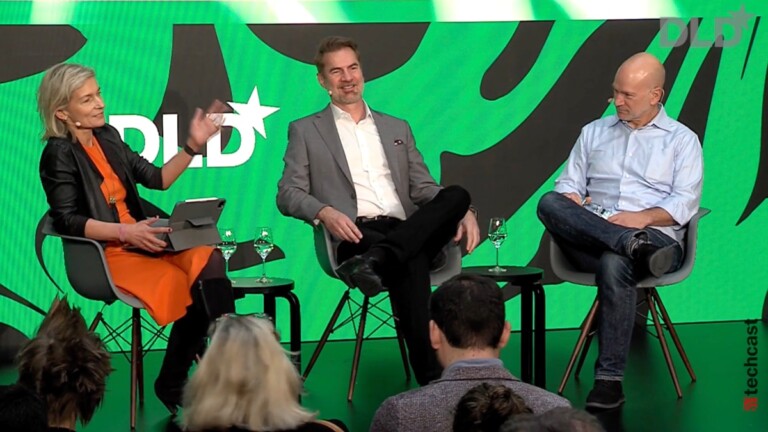How can the circular economy act as a strategic response to geopolitical tensions, particularly with regard to critical minerals and raw materials? That question lies at the heart of this expert panel discussion with Benedikt Franke (Munich Security Conference), Glenn Schmidt (BMW Group), Wen-Yu Weng (Ellen MacArthur Foundation) and Ke Wang (World Resources Institute), moderated by author and consultant Manuel Braun.
“We’re really operating under maximum uncertainty”, Benedikt Franke notes with regard to rising international tensions. “We are vulnerable as societies, as economies and as democracies.”
The vulnerability of global supply chains makes it crucial to reduce dependencies and vulnerabilities, Franke says. This highlights the importance of reusing materials and a more sustainable use of resources. “It’s an absolute imperative to think about the circular economy in terms of geostrategic uncertainty”, the security experts adds.
Ke Wang addresses the role of “critical minerals” which are crucial to many industrial processes as well as the clean energy transition. A report by the IEA in 2021 was a wake-up call, she says, because it showed that “we need a lot of them, four to six times more than now”. In addition the supply chains of these minerals “are highly concentrated” in just a few countries.
Still, only a “very small part of attention comes to circularity and is focused on recycling”, she says. To change that, “we have to find a way to make higher circularity a good business. That’s the only way for it to scale.”
BMW’s Glenn Schmidt adds an industry perspective, explaining that the German carmaker’s “Neue Klasse” vehicles are designed for circularity from the outset: “One third of the car” is made of secondary materials, he says about the BMW iX3. “That applies to the aluminum, but it also applies to the battery cell. 50% of the lithium, cobalt and nickel is already secondary.”
Wen-Yu Weng emphasizes that circularity is not just about de-risking but a fundamental necessity for meeting climate targets and a better future. “We will not meet the climate targets without circularity”, she emphasizes. “We will not have societal progress. We cannot build data centers without circularity.”
Watch the video for further insights into this important topic







